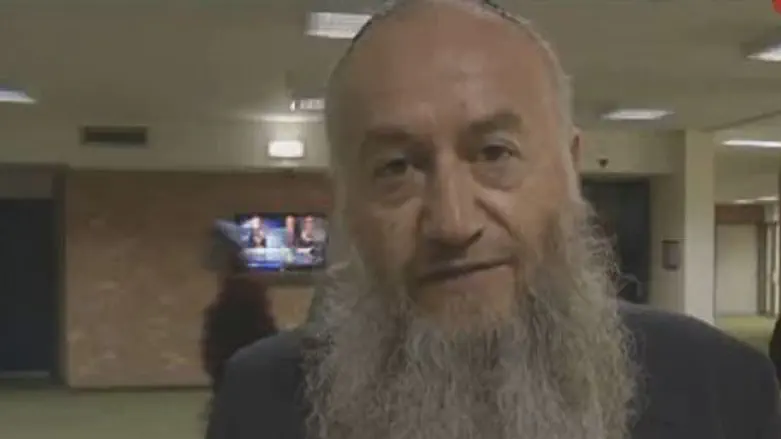
A dramatic reunion of former Soviet refuseniks and those who helped them leave for Israel was held at the Knesset on Wednesday, part of a special Day of Recognition for the cause.
The Knesset Immigration and Absorption Committee held a session in honor of the day, and MKs and refuseniks stated their support for increased pensions for many of the refuseniks. It was explained that many of them were denied years of high-level jobs in Soviet Russia - punishment for their Jewish and Zionist activities. By the time they were finally allowed to immigrate to Israel, they had lost many valuable years of pension-accruing work - and some of them now find themselves with paltry pensions of 1,500 shekels a month.
INN's Hezki Ezra and his camera were there.
MK Michael Ben-Ari (National Union) said, "The heroes sitting here are the elite of the Nation of Israel. I am skeptical whether the top commando units in the IDF would have done what they did."
A festive ceremony honoring the refuseniks was held in the Knesset auditorium, with the participation of Knesset Speaker Ruby Rivlin and Cabinet ministers. An exhibition from the Diaspora Museum was on display, and musical entertainment was provided.
A request was made during the committee session that the story of the first 18 Soviet families' request to immigrate to Israel be added to the school curricula. In 1967, the 18 families, led by Shabtai Alhashvilli, wrote to the United Nation Human Rights Commission about the refusal of the Soviet authorities to allow them to move to Israel. This was the first public demand by Soviet Jews of this nature, and led to international public pressure that later culminated with the consent of the Soviet government to gradually allow Jewish immigration to Israel.
